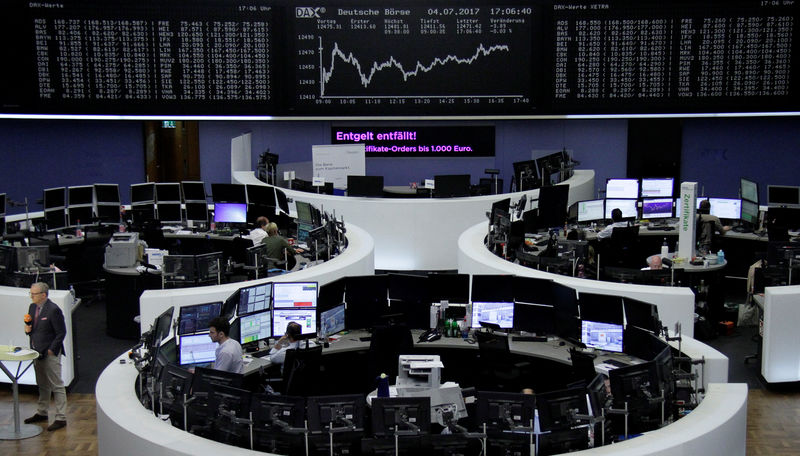By Kit Rees
LONDON (Reuters) - European shares edged lower on Wednesday, weighed down by weak healthcare stocks and utilities, although gains among basic resources stocks after an upgrade helped cap losses.
The pan-European STOXX 600 index was down 0.1 percent by 0831 GMT in choppy trade, while the blue chip index also fell 0.1 percent.
Miners rose 0.9 percent, hitting a two-month high after Credit Suisse (SIX:CSGN) upgraded the sector to "overweight" in its latest global equity strategy update, saying the sector was a more rewarding play on higher oil prices, interest rates and inflation.
Glencore (LON:GLEN), which rose 2.2 percent, also supported Britain's commodity-heavy FTSE 100, with BHP Billiton (LON:BLT) in tow as Chinese steel rebar futures rallied.
Among individual movers, British housebuilder Persimmon (LON:PSN) jumped around 3 percent after it reported a 7 percent rise in first-half sales, with the market unaffected by the UK's June general election.
"(There's been) a fair bit of concern regarding the housing sector, what the outlook might be like with the uncertainty caused by the general election and the Brexit negotiations ongoing," Dafydd Davies, partner at Charles Hanover Investments, said.
"However, we do see further upside (to) the housebuilders due to the current shortage of housing stock there is still in the UK."
Shares in Adidas (DE:ADSGN) were the biggest individual gainers, rising 4.3 percent to the top of the STOXX after HSBC said that the sporting goods firm was likely to increase its outlook, upgrading it to "buy".
"We believe the sales growth story and associated margin expansion plan make this stock a very visible compounder," HSBC analysts said in a note.
Interest rate-sensitive utilities and health care stocks were a weak spot, with pharmaceuticals dragged down by GlaxoSmithKline, which fell after a downgrade from Citigroup (NYSE:C) to "neutral" from "buy", citing a slowdown in market for HIV drugs if the Affordable Care Act (ACA) is repealed.

A rise in interest rates has been a focus for markets ever since central banks hinted at a possible tightening in monetary policy, with a rise in bond yields making high dividend-paying stocks less attractive.
